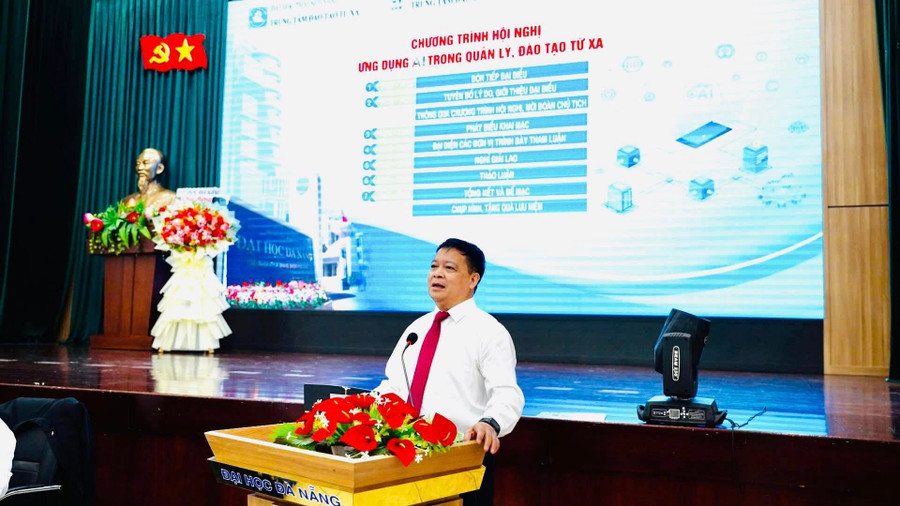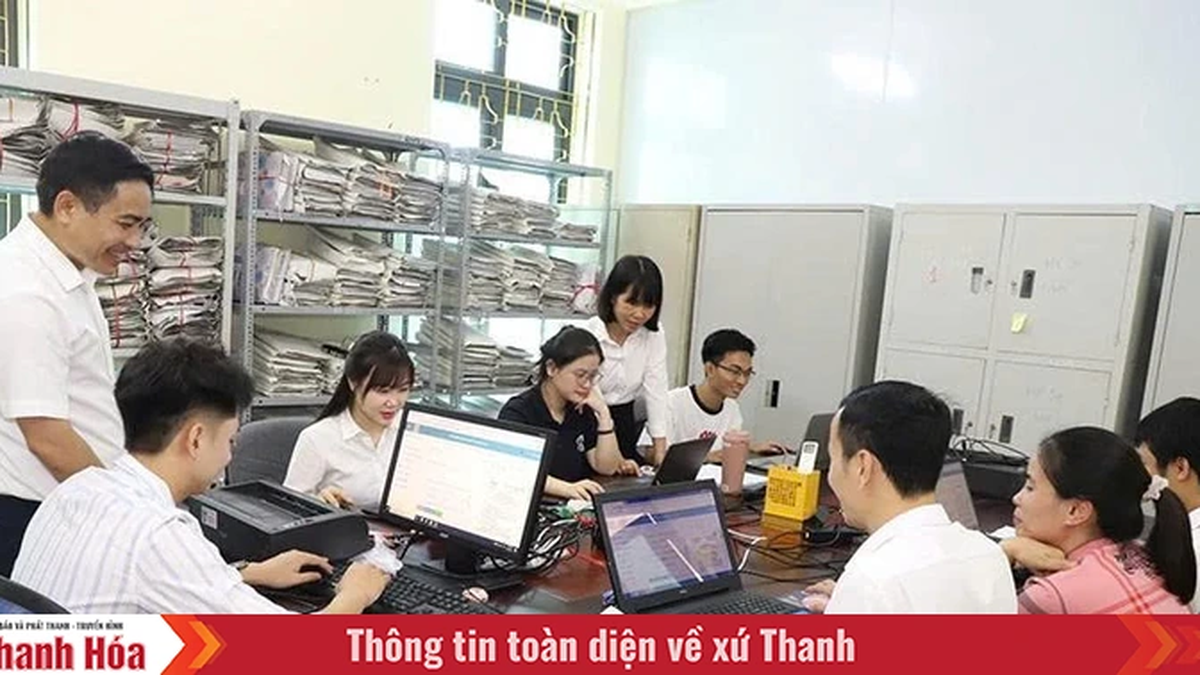Strong AI Application Potential
Education and training, especially distance learning, is considered one of the fields with the strongest potential for AI application. Not only supporting the teaching and learning process, AI also contributes to innovating educational management, improving training quality and improving the overall learner experience.
Distance learning is a learning model that uses digital platforms to deliver knowledge to learners without requiring physical presence at the training facility. This model has become increasingly popular, especially after the COVID-19 pandemic, when the need for flexible learning and lifelong learning became urgent.
However, distance learning also poses many problems such as difficulty in quality control, lack of personalized interaction, difficulty in managing learning progress, and inequality in access to technology between regions. In that context, artificial intelligence is expected to be the optimal solution to improve efficiency and fairness in the distance learning model.
AI has the ability to analyze big data, learn from user behavior, and make decisions in real time. These capabilities allow AI to not only support but also contribute to personalizing the learning process, automating management processes, and improving the quality of output.
One of the outstanding advantages of AI is the ability to analyze learning behavior to make recommendations suitable for each individual. Adaptive learning systems use AI to assess the ability, learning habits and progress of each student, thereby creating a separate learning path, helping learners maximize their personal potential.
AI supports training institutions in automating the admission process, screening candidate profiles and making suggestions on suitable majors. Based on previous learning data, test scores, personal interests, AI can support more personalized and accurate major selection advice.
Through AI-integrated learning management systems (LMS), schools can monitor student progress, detect early risks of dropping out or declining academic performance, and take timely interventions. In addition, AI can also support the development of automated assessment forms, such as smart quizzes, automated feedback, and essay scoring thanks to natural language processing (NLP) technology.
AI-integrated virtual assistants (chatbots, voicebots) can operate 24/7, helping to answer students' questions about lesson content, class schedules, course information, etc. This is especially useful in distance learning models, where learners can study anytime, anywhere.
One of the biggest hurdles is the issue of personal data protection. When AI collects and analyzes personal information, learning records, and online behavior of learners, the risk of data leakage or misuse is inevitable. Training institutions need to strictly comply with information security regulations, such as the Cybersecurity Law, ISO 27001 standards, and international privacy policies such as GDPR.

Building a technology capacity building program
In Vietnam, about 40% of students in remote areas have difficulty accessing online training due to poor technology infrastructure, lack of equipment, or high Internet access costs, which causes disparities in access to education.
The solution here is to develop learning platforms that can work offline, integrate AI into low-cost mobile devices, and promote technology support programs in disadvantaged areas.
AI is a complex technology that requires large initial investments in software, hardware, and technical personnel. Training faculty, developing technology capacity building programs, and integrating AI knowledge into undergraduate and graduate training are necessary steps to ensure sustainability in the application of this technology.
If AI is overused, learners may lose their independent and critical thinking skills, while teachers may also lose their role as guides and inspiration. AI needs to be used in a balanced way, playing a supporting role rather than completely replacing the human element in education.
Associate Professor, Dr. Le Thanh Bac - Vice President of Danang University commented that: "AI application is not only a trend but also an inevitable requirement to improve the quality of training high-quality human resources in the current period."
From another perspective, Mr. Le Duc Minh Phuong - Institute of Open Training and Information Technology (Hue University) emphasized: “AI does not replace humans, but helps humans work more effectively. The value of AI lies in how we use it at the right time, in the right place, and responsibly.”
In the near future, AI will play an increasingly central role in higher education and distance learning. However, for AI to be most effective, educational institutions need to have a clear strategy: investing in infrastructure, developing human resources, ensuring equitable access, and building a legal framework to protect data.
Source: https://giaoducthoidai.vn/ung-dung-tri-tue-nhan-tao-trong-quan-ly-va-dao-tao-tu-xa-post742727.html























































![[Maritime News] Two Evergreen ships in a row: More than 50 containers fell into the sea](https://vphoto.vietnam.vn/thumb/402x226/vietnam/resource/IMAGE/2025/8/4/7c4aab5ced9d4b0e893092ffc2be8327)










































Comment (0)